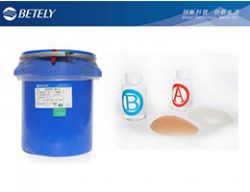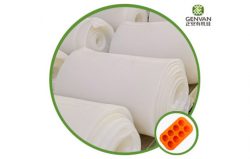Robot Control Cable Jacket Material Solution
TPU For Robot Control Cable
1. Fully meet the testing requirements of robot control cables through UL, VDE, TüV, CIAR, and other standards;
2. High-temperature resistance:
one of a very few halogen-free flame retardant thermoplastic polyurethane for sale that supports cable passing UL758/1581 105℃ temperature resistance grade test (136 /168Hrs);
3. High mechanical properties:
pass through ≥ 50000 wear-resistant tests, effectively avoid cable wearing and cracking in use; excellent tensile strength (≥ 18Mpa) tear strength (≥40N) and modulus of elasticity, support the wire going through torsion resistance, bending resistance, and flexion resistance tests;
4. Good dynamic mechanical properties:
fully meet the TüV 1-5 level mechanical performance requirements.
5. Better environmental performance:
Oil Resistance:
Supporting the cable to pass70℃/24h oil resistance test, the change rate of strength and elongation is no more than 30%;
Hydrolysis resistance:
Supporting the cable to pass hydrolysis resistance test at 80℃/168h, strength change rate is less than 30%, elongation change rate is less than 35%; or 1000Hrs hydrolysis resistance test (85℃/85% RH, 1000Hrs);
Acid and Alkali Resistance:
Supporting the cable to pass the acid and alkali resistance test at 23℃/168h, the strength change rate is no more than 30%, and the elongation rate is no less than 100%.
PVC For Robot Control Cable
The introduction of elastomer functional groups in PVC resin greatly improves the comprehensive properties of PVC materials. Compared with normal PVC materials, it has obvious advantages as follows:
1. Supporting cables pass UL758/1581 VW-1 combustion test;
2. High elasticity:
take account of soft-touch and higher Modulus of elasticity;
3. Good dynamic mechanical performance:
fully meet the TüV 1-5 level mechanical performance requirements;
4. Excellent environmental resistance:
Oil Resistance:
pass 70℃/24Hrs oil resistance test, the change rate of strength and elongation is no more than 30%.
Hydrolysis resistance:
pass hydrolysis resistance test at 80℃/168Hrs, strength change rate is no more than 30%, the elongation change rate is no more than 35%.




































































